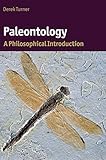Paleontology [Texte imprimé] : a philosophical introduction / Derek Turner
نوع المادة : نصالسلاسل:Cambridge introductions to philosophy and biology (Cambridge University Press, Cambridge)تفاصيل النشر:Cambridge ; New York ; Melbourne [etc.] : Cambridge University Press, 2011وصف:1 vol. (XI-227 p.) : couv. ill., graph. ; 25 cmتدمك:
نصالسلاسل:Cambridge introductions to philosophy and biology (Cambridge University Press, Cambridge)تفاصيل النشر:Cambridge ; New York ; Melbourne [etc.] : Cambridge University Press, 2011وصف:1 vol. (XI-227 p.) : couv. ill., graph. ; 25 cmتدمك:- 978-0-521-11637-4
- 560 23E
- 500
| نوع المادة | المكتبة الحالية | المجموعة | رقم الطلب | رقم النسخة | حالة | تاريخ الإستحقاق | الباركود | |
|---|---|---|---|---|---|---|---|---|
|
|
Bibliothèque centrale En accès libre | Collection générale | 500 / 911 (إستعراض الرف(يفتح أدناه)) | 1 | المتاح | 000005795987 |
"Imagine a planet almost exactly like ours, but with one crucial difference: it has no fossils. Call this imaginary planet Afossilia. Afossilia and Earth harbor the very same kinds of living things, from ferns to human beings to E. coli bacteria. Both planets have the same surface features and the same types of rocks. And both have experienced exactly the same evolutionary histories, with the same species evolving and going extinct at exactly the same time. We can even suppose that you and I have counterparts living on Afossilia -- that is, that there are people there who are exactly (or almost exactly) like us. Some Biblical literalists hold that God placed fossils in the rocks in order to test our faith in scripture. I invite you to join me now in thinking about a simple inversion of this familiar idea: what if God -- or if not God, then some more sinister spirit -- systematically removed all the fossils from the rocks just before (Afossilian) humans evolved and began to study the world around them. Afossilia has no fossilized footprints, leaf imprints, shells, pollen, teeth, bones, coprolites (fossilized feces), or any of the remains of ancient organisms that we on Earth can see on display in natural history museums. Suppose you had the opportunity to tour a major research university on Afossilia. There you would find physicists, cosmologists, astronomers, chemists, biochemists, and molecular biologists doing exactly the same things that scientists in those fields do here on Earth. But you would find no paleontologists on Afossilia -- no departments of paleontology or professional associations for paleontologists. A world without fossils must also be a world without paleontology ("the study of ancient beings"). "-- Provided by publisher
Bibliogr. p. 209-221
Machine generated contents note: 1. Paleontology and evolutionary theory; 2. A new way of looking at the fossil record; 3. Punctuated equilibria: provocations and problems; 4. The emergence of a hierarchical evolutionary theory; 5. The case for species selection; 6. Real trends; 7. The dynamics of evolutionary trends; 8. Is evolution contingent?; 9. Diversity and disparity; 10. Are genes the new fossils?
لا توجد تعليقات على هذا العنوان.


